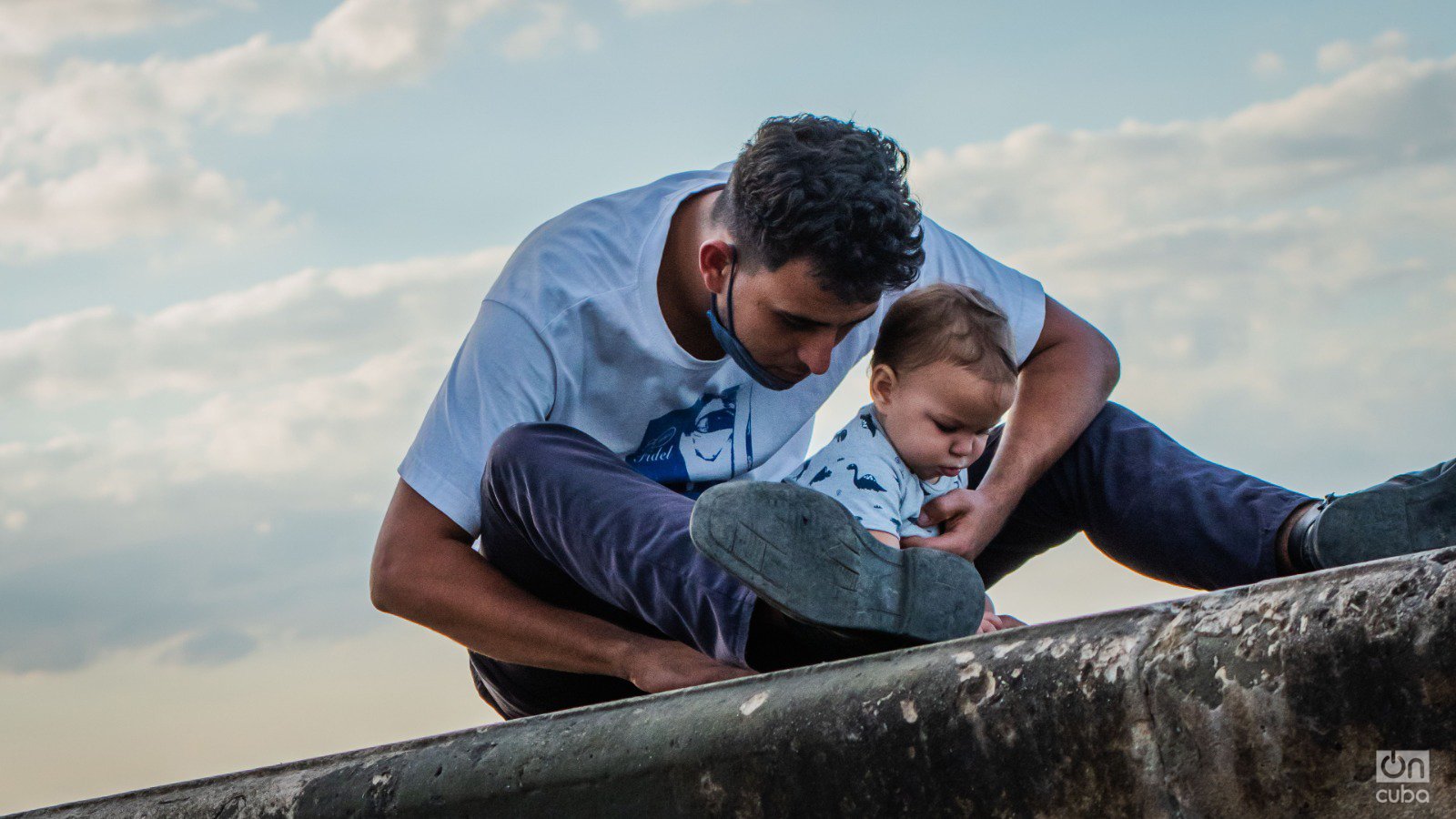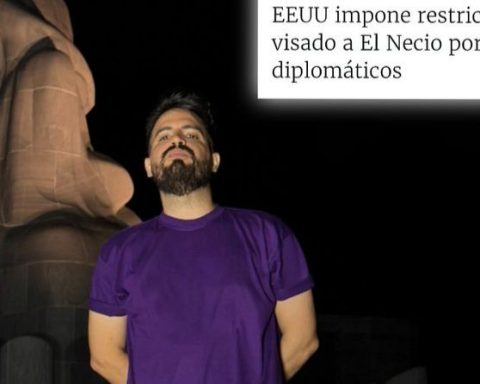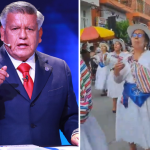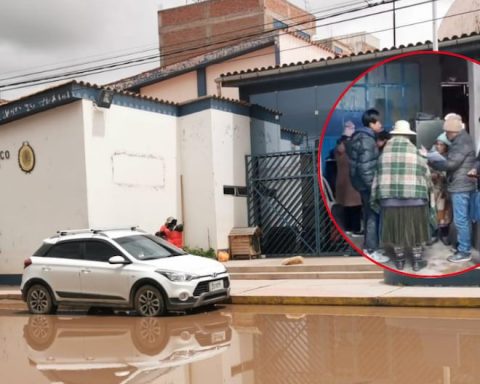My children were seven years old when I divorced their mother in 2009. The pension that he should, by law, send them was 60 pesos in total for both of them. Faced with such a figure, unable to solve a single problem, I asked the notary if I could enter in the separation agreement a fixed percentage of my income, present and future, as a pension for them and legal protection for their mother. She told me to stop making inventions, that Cuba was not Norway.
I have heard this phrase repeated in recent months about the draft Family Code (CF), whose referendum will be held tomorrow, September 25. The phrase of the notary who attended me during my divorce and that I have heard other times in the context of the CF debate refers to the fact that it contains very advanced regulatory elements for a country “that is not prepared for them”, or that needs other “more urgent” things.
Cuba had a civil divorce law (1869) long before Norway. None of the contents of the Family Code are “Cuban inventions”. Cuba has urgent needs regarding the tragedy that is daily life —from be able to count on electricity a few hours a day, to freeing prisoners for political reasons, including being able to buy food and medicines — but CF is much more than a step in the right direction.
To be and to be of Cuban problems in the 21st century
The equality marriage —one of the strong pieces of the CF discord— is not a Cuban invention. In Latin America, eight countries have authorized it: Argentina, Brazil, Colombia, Costa Rica, Ecuador, Mexico, Uruguay and Chile. In the world, it exists in more than 30 nations.
The CF incorporates the express prohibition of discrimination based on identity and sexual orientation. In Latin America, at the constitutional level, Ecuador, Bolivia and Mexico have done it before. Within the region itself, adoption by same-sex couples is permitted in Argentina, Brazil, Colombia, Costa Rica, and Uruguay. There are self-perceived identity defense mechanisms in Panama, Uruguay, Brazil, Argentina, Colombia, Bolivia, Ecuador and Chile.
Same-sex marriage is an act of “social justice,” says Cuban activist
The term “parental responsibility”, which replaces in the CF the old Roman notion of “patria potestad”, appears in the International Convention on the Rights of the Child since 1989. The CF addresses very specifically Cuban problems, also of a Cuba full of needs here and now: the rights to life, to sexual indemnity and bodily integrity, to the free development of the personality, to intimacy, to one’s own image and voice; and to sexual freedom, and sexual autonomy, integrity and safety.
The right to equality and non-discrimination is also a specifically Cuban problem. It is also offering legitimacy to various types of family (for example, both marriages and de facto unions), and protecting stepfathers and stepmothers, and the effective cohabitant when there is only separation and not divorce.
Other Cuban problems include the possibility of setting various economic agreements for marriage (marital community or mixed property regimes), facilitating adoption (nothing replaces a family, when the effective rate of adoption in Cuba is very low), and recognizing the multi-parenthood (consanguineous and socio-affective) in a country where “political” aunts and grandparents, friends and neighbors often act as an effective family.
They are problems for Cubans unable to gestate on their own to be able to access surrogate motherhood (the CF regulates it exclusively in solidarity mode), as are problems for all Cubans to prohibit child marriage (the age for marriage is now 18 years ); protect elderly people (and their right to decide where and with whom to be) and offer guarantees to people in charge of caring for others, in a society that is on the way to being the oldest in Latin America.
Cuban problems are that minors have the right to be heard and to be protected in their physical and emotional integrity; guarantee access to affectionate animals in case of divorce; protect people with disabilities, and protect children and adolescents in exceptional and disaster situations. All of the above is contained in the CF.
My children have two parents. I share that condition, willingly and collaboratively, with his stepfather. With the new CF, they could have had three surnames, also recognizing that of their father/stepfather and thus making visible what it means to them.
With the new CF, through a court ruling, his mother and I could have established an amount for the pension, and established the currency in which he was obliged to pay it. His mother would have been much more protected against my eventual “disappearance” and flight from my responsibilities.
None of this would have made us Norwegians, but rather Cubans with the desire to take charge of imaginations that are decidedly outside the “chealdad and backwardness” of other Cuban things.
Other problems, specifically Cuban
The CF did not have to submit to a plebiscite. Leaving the No as a possibility on issues such as equal marriage was negotiating rights for votes in the referendum for the Constitution of 2019. It is holding various social communities hostage to an electoral majority, when majorities cannot decide on fundamental rights.
Equality and non-discrimination are fundamental rights. In the vast majority of countries that have approved same-sex marriage, this has happened directly through laws or court decisions. Having done it through a plebiscite is a Cuban problem.
The plebiscite compromises rights that must be equally available to all. Whoever reads this text imagines that tomorrow’s plebiscite decides whether black children can access the same schools as white children, or whether people with Christian beliefs can inherit. It sounds scandalous, because it is, but it is more: it is unacceptable.
It is also unacceptable to decide who has access to the institution of marriage. To do so is to be able to decide from the legal plane itself between first-class citizenship (full access to rights in the formal plane) and second-class citizenship (limited formal access to rights). The latter is not consistent with any democratic theory of citizenship, which understands it, at least, as equal legal status of rights and duties vis-à-vis the state and vis-à-vis the rest of the citizenry.
If the answer is that only heterosexuals can have access to marriage, the rule itself configures a apartheid legal. In case of victory of the No in the plebiscite, a scenario is repeated, no less serious because of history, of state discrimination. The possible “No” to the CF referendum would be an unconstitutional result for violating the principle of dignity and the right to equality. It is a contradiction enabled by the choice of the figure of the referendum.
The Cuban government did not pass a referendum law for either the 2019 Constitution or the CF. It did not modernize its more than primitive electoral system one millimeter (where voter registration forms can be filled out by hand and at the last minute, and voting is done with a pencil), nor did it grant voting rights on the CF to the emigrated community, reinforcing exclusion of national membership rights to the transnational family.
Of the more than a hundred new regulations contemplated by the legislative calendar approved for after 2019, the CF is probably the only one capable of arousing enthusiasm —and also for this reason so much political dispute—, due to the way in which it creates and recognizes new rights. However, it is the only one that has been submitted to a plebiscite —it will be the first dedicated to a law since 1959—. Other regulations, contrary in spirit to the CF, severely restrictive in various fields and aligned with conservative currents of global law, such as the Criminal Code, had an expedited process as laws.
The political dispute: rights are the way
The CF has been the scene of a public political dispute unknown to date in Cuba. There is no minimally strong idea of democracy that does not involve conflict. This is neither given nor granted. It’s the same with rights. Both need conflict and challenge: exemplary acts, moralities of freedom, ethics of justice, testimonies of faith in “human betterment.”
By being taken to a plebiscite, the responses at the polls will be saying many different things. Some responses will allude to CF itself, and others to issues such as government performance. The vote of punishment against the government will occupy an important place in the vote. The plebiscite is an opportunity —which does not exist in other spaces such as the rest of the elections, the institutional system, the state press, etc— to send a message of rejection of the government.
The tragedy is that it is an opportunity that depends on rejecting rights. The government made it easy, by delivering the decision on rights to the polls. An area of the opposition reinforced it by assuring that the “fundamental” thing is to challenge the government, and thus accept the rejection of rights.
Within this notion of dispute, it is legitimate that Pastor Bárbaro Abel Marrero, an evangelical, has arrived for the first time in Cuba with this type of speech on national television, in this case to defend the NO for the CF. At the same time, it is not legitimate for LGTBQ+ activists with critical positions towards the government, and in defense of the CF, to be prevented from such access.
Now, the weaknesses of the CF, even in the event of a Yes victory, come more from the Cuban political ecosystem than from the regulatory content of that norm. The possibility that people who dissent from the Cuban political system lose parental authority over their children —very much mentioned in the debate on social networks— is a much more obvious possibility in the 1975 Family Code.
That rule, which would remain in force if the NO wins tomorrow, imposes a dozen times the obligation of families to educate their children in “socialist morality.” In contrast, the current CF project mentions the word socialism only once, and it does so in a “because”, not in articles that impose mandatory actions.
Then, a weakness of the CF is its context: the profuse extralegal action of the Cuban State. Putting someone on a plane and sending them to Poland without any legal process, or forcing journalists to resign from their jobs also without legal process, are very graphic examples, but they are far from unique. Such practices do not contribute to generating confidence in a notion as powerful and desirable as that of “parental responsibility”, contained in the CF, which does not offer any legal basis to deprive anyone of it for political reasons.
The CF is the most synchronized standard with the most advanced in the world today, with the most truly humanistic commitment, the most sophisticated technical elaboration, with an ear that is closest to the needs of the daily life of Cuban families, which we have had for decades in the country. It is an open door, longed for, to the Cuban 21st century.
It is also a very important achievement of the Cuban Government, which has supported these contents, facilitated and promoted the elaboration of the CF by a group of brilliant jurists, among whom it is worth mentioning Leonardo Pérez Gallardo, a world-class eminence on the subject.
The economic situation in Cuba, the inability of the Cuban government to deal with the political difference, are serious problems. Also for this reason, it is essential to promote, and try to concatenate, new spaces and democratic sociabilities.
Instead of condemning the CF because “it comes from the government”, it is an opportunity that reminds everyone that justice, if it is defended, must be defended in its entirety. Ultimately, CF affirms something as simple as it is hard: rights are not only a goal, they are also a path.













![[Video] Cristiano Ronaldo suffers a strong blow to the septum and worries his fans [Video] Cristiano Ronaldo suffers a strong blow to the septum and worries his fans](https://latin-american.news/wp-content/uploads/2022/09/Video-Cristiano-Ronaldo-suffers-a-strong-blow-to-the-septum-1024x570.jpg)



